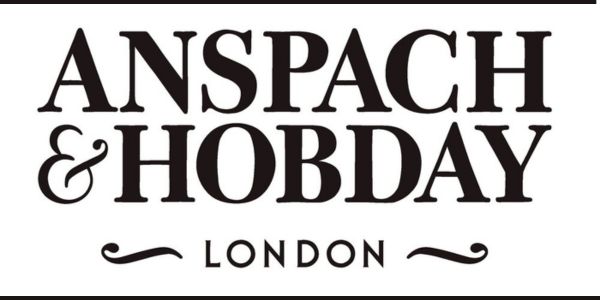The Campaign for Pubs has written to the Business, Energy, and Industrial Strategy (BEIS) select committee, urging it to investigate the endemic use of hostile Section 25 eviction notices by regulated pub-owning companies.

The letter, from campaign chair Paul Crossman, details the way in which the notices are now regularly used in order to take pubs back from good-quality, long-term tenants, and to remove their pubs from the scope of Pubs Code protection in the process.
It makes reference to the high-profile current case of The Britons Protection pub in Manchester, where the long-standing tenant is fighting eviction from his unique and iconic pub by owners Star Pubs and Bars, pub operating arm of brewing giants Heineken.
It warns that the regulated pub companies have been given the time to restructure their operations in such a way as to game and avoid the spirit and intent of the Pubs Code regulations, which came into effect in 2016. The code was intended to address the chronic imbalance of risk and reward that had come to characterise the tied tenanted model of pub operation.
Four successive business committees flagged the failings of the tied model since 2008, says the campaign, and their critical reports were instrumental in securing the statutory regulation that eventually came into effect.
The Campaign for Pubs is now urging the current BEIS committee to consider how that legislation is now being openly gamed and avoided by the cynical (mis)use of Section 25 notices. It condemns the way that these companies can so easily abuse the spirit of one Act — The Landlords and Tenant (L&T) Act — to negate their own legal responsibilities and the rights of their tenants under another — The Pubs Code regulations of the Small Business and Enterprise Act.
Mr Crossman is highly critical of the Pubs Code adjudicator’s (PCA) office for failing to address the growing problem of hostile Section 25 notices, as well as the fact that the regulated companies were openly developing new business models which were clearly designed to allow them to evade the Pubs Code regulations that the PCA is supposed to uphold and enforce.
The letter points out that certain pub companies have developed a new ‘quasi-managed’ form of tenancy which they are attempting to pass off as a management scenario in order to justify a claim for occupation. However, the new ‘manager’ is not directly employed by the pub company and receives none of the benefits and securities to which a genuine employee would be entitled. Instead, they are a self-employed person with their own tax liability, and responsibility for employing their own team.
The letter questions the validity of this new type of tenancy when it comes to justifying a hostile Section 25 notice. It argues that these models may fail to meet the legal criteria that would reasonably enable a pub-owning company to claim that a pub is being taken back under Grounds G of Section 25 of the L&T Act because it is the “landlord’s intention to occupy the holding for his own business or as a residence”.
The letter likens these quasi-managed agreements to ‘Uber’ pubs. It urges the committee to scrutinise such deals and to press for their efficacy to be assessed. It points out that these quasi-managed deals have been openly developed over time, under the very nose of the PCA and BEIS Dept.
The PCA has a duty to report problems and issues with the Pubs Code back to the Secretary of State at BEIS, yet the letter points out that no apparent action has been taken regarding either hostile Section 25 notices or code-avoiding quasi-management models, despite repeated efforts by campaigners to raise the alarm.
Mr Crossman states that the use of hostile Section 25 notices has become commonplace in the industry since the introduction of the Pubs Code, and cites his own experience of having to contest such a notice from Punch Taverns in 2017.
Meanwhile, in Manchester, a campaign is currently building around The Britons Protection since it was served a hostile Section 25 notice by Star Pubs and Bars. There is outrage locally that the long-serving tenant should now face eviction through no fault of his own from the successful, unspoilt and highly idiosyncratic pub of which he has been a careful steward for ten years. The tenant, Mark West, is preparing to take the matter to court in a legal test case.
The Campaign for Pubs is calling on the BEIS select committee to:
- Take a keen interest in the destructive effect that predatory Section 25 notices are having on the pub infrastructure of the UK, and to conduct an enquiry into the matter.
- Challenge the PCA as to why they have not acted, if only by flagging up the clear proliferation of hostile Section 25 notices and new quasi-managed agreements to the Secretary of State.
- Address the issue of statutory compensation payable under the L&T Act so that it is not a cheap option for pub companies to evict blameless, good-quality, long-standing tenants. Such tenants should receive a level of compensation that truly reflects the value of the business that they have built up.
- Urge the government to investigate and rule on the efficacy of these new quasi-managed models and decide whether they can be legally used to justify the eviction of good-quality, long-term tenants.
- Advocate legal recourse for any former leaseholder who has been forced out of their pub if it is decided that these new models fail to meet the necessary criteria to satisfy Grounds G.
- Require the PCA to collate, analyse, and clearly report the data they have amassed regarding hostile Section 25 notices served since the Pubs Code came into effect, and obtain further details from the pub companies to complete the picture.
- Require the pub companies to disclose the failure rates of tenants who have attempted to run pubs under their new quasi-managed models. The committee should hold a consultation inviting tenants to give their experience of these business models and should test the assertions of the pub companies that these new models represent a fair and reasonable business opportunity.
- Request that HMRC take a close look at these models and hold the pub companies (not the tenants) entirely and directly responsible for any irregularities they uncover.
- Call for a review of the Landlord and Tenant Act. The issue of Section 25 abuse urgently needs to be addressed, along with many other flaws in the Act, such as the continued permissibility of upward-only rent reviews.
- Support calls for another full competition review to address the endemic anti-competitive practices which continue to limit consumer choice in both pubs and beer. It has been 33 years since the last competition review of the beer and pub market (the 1989 Beer Orders).









